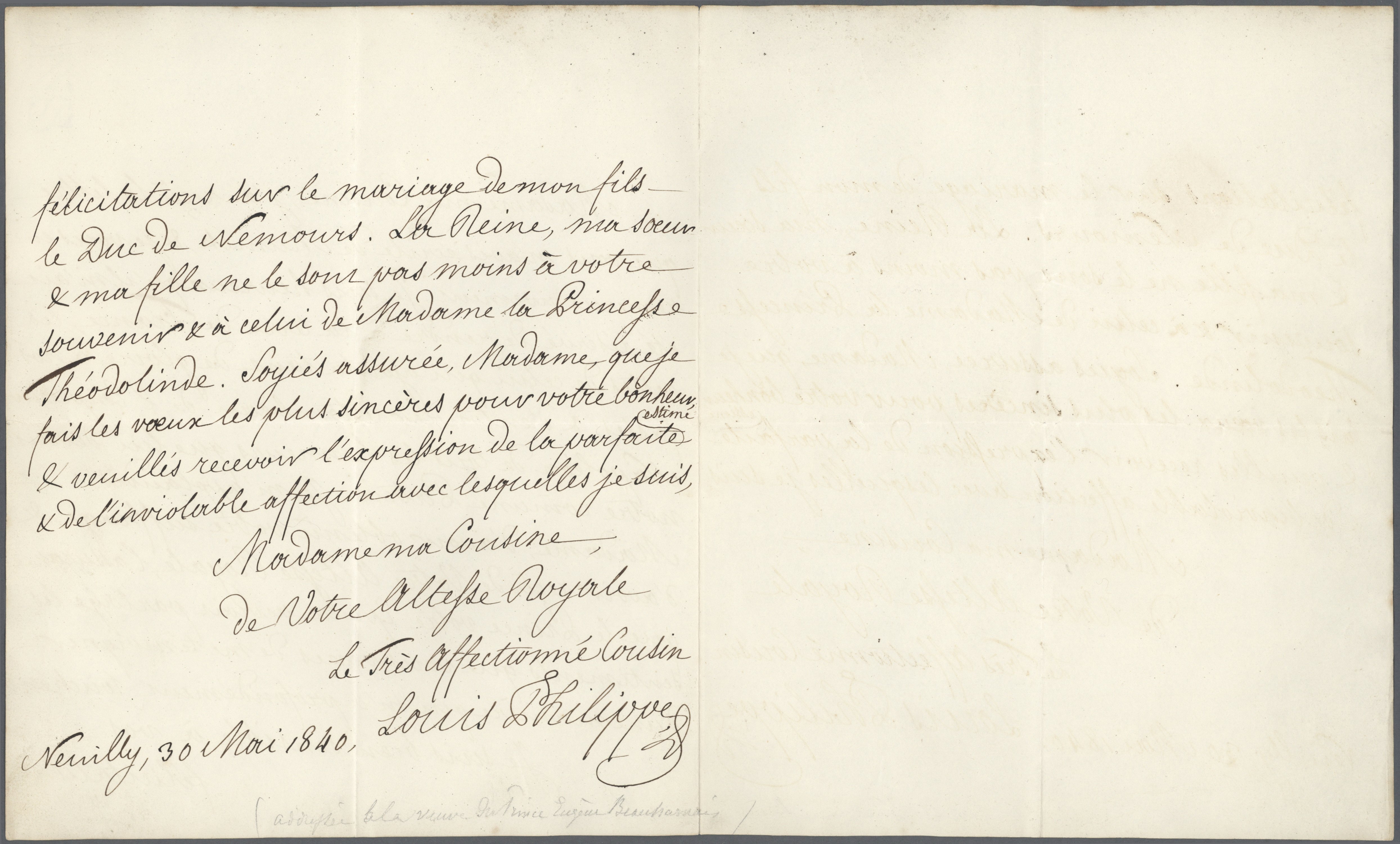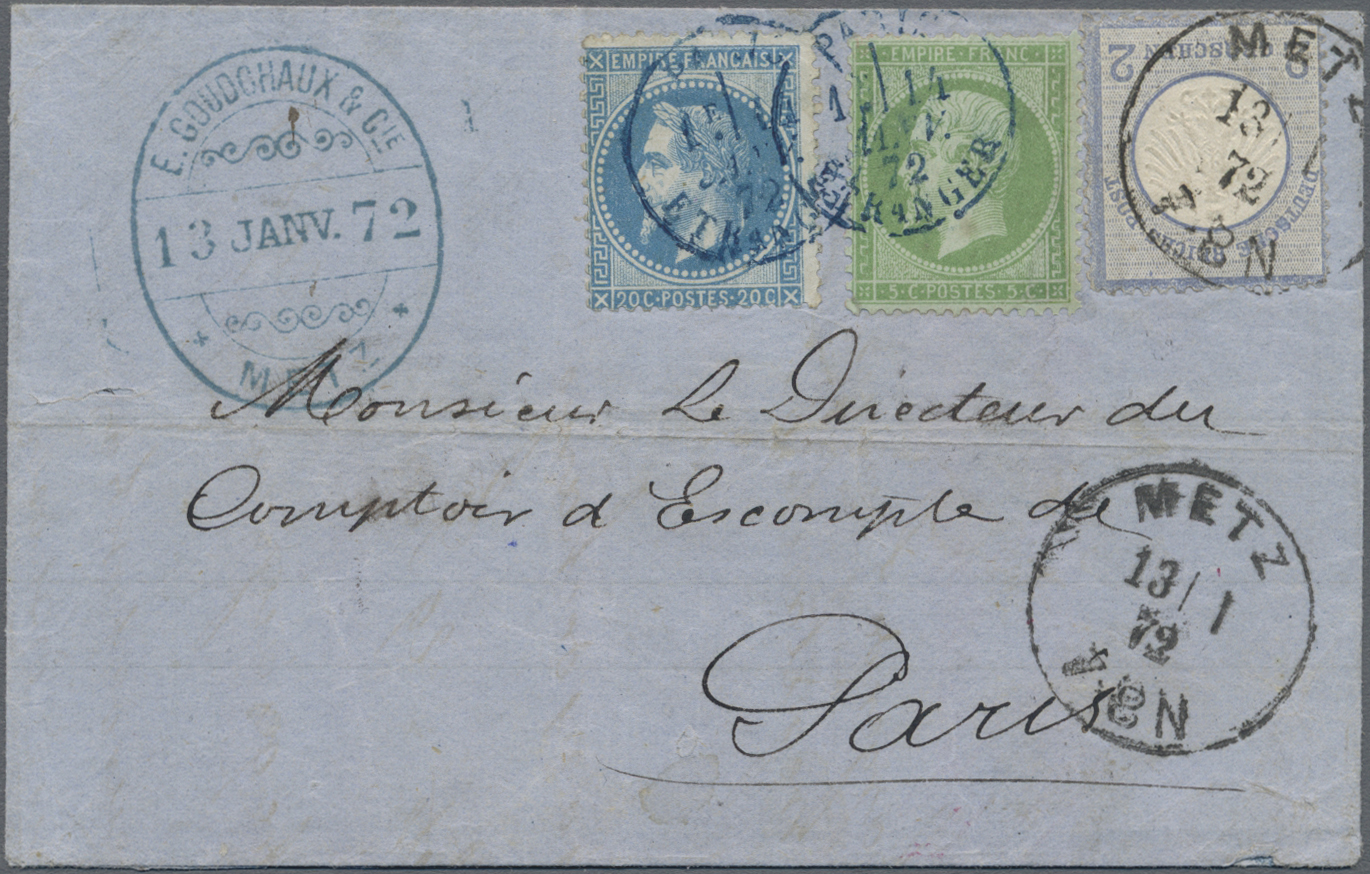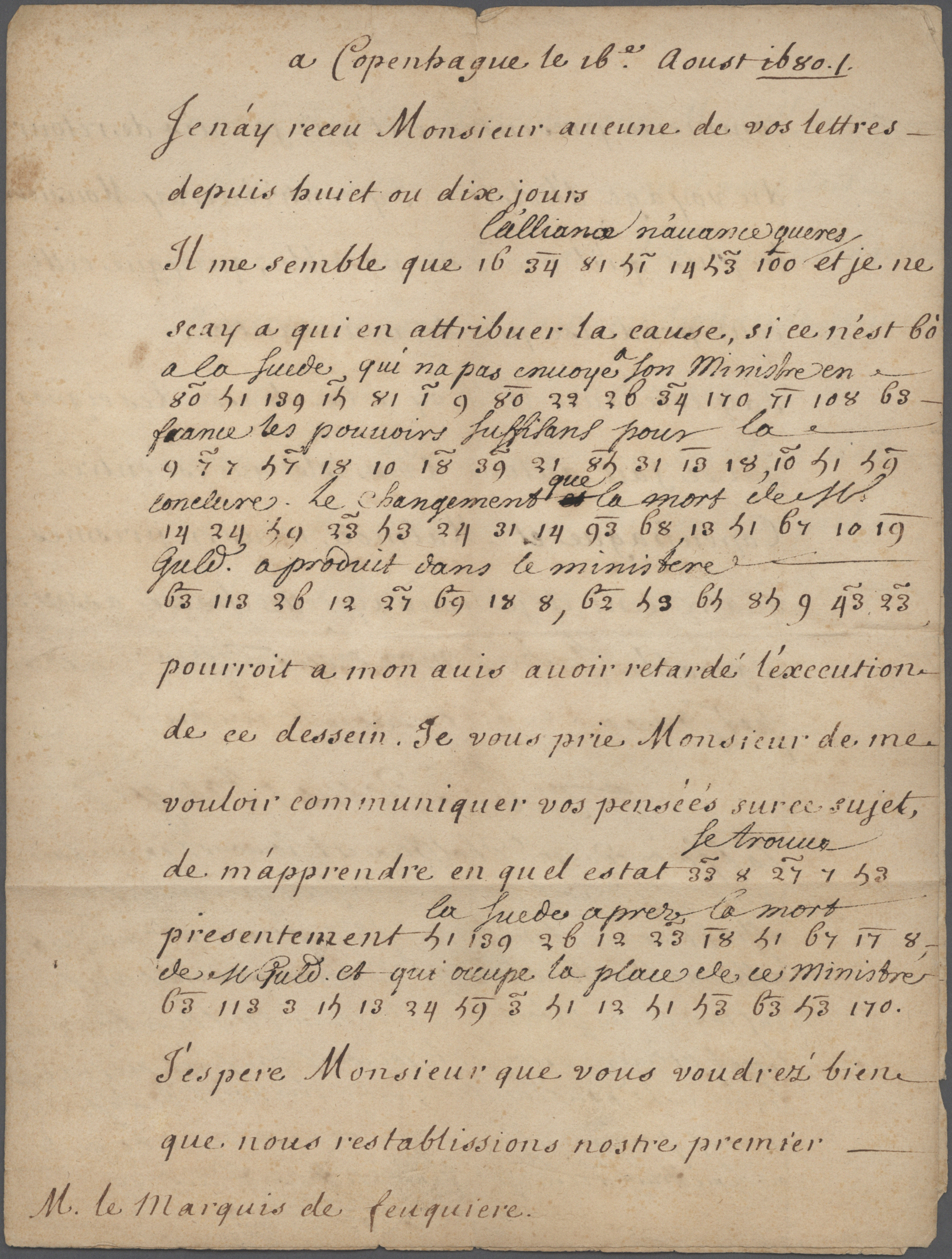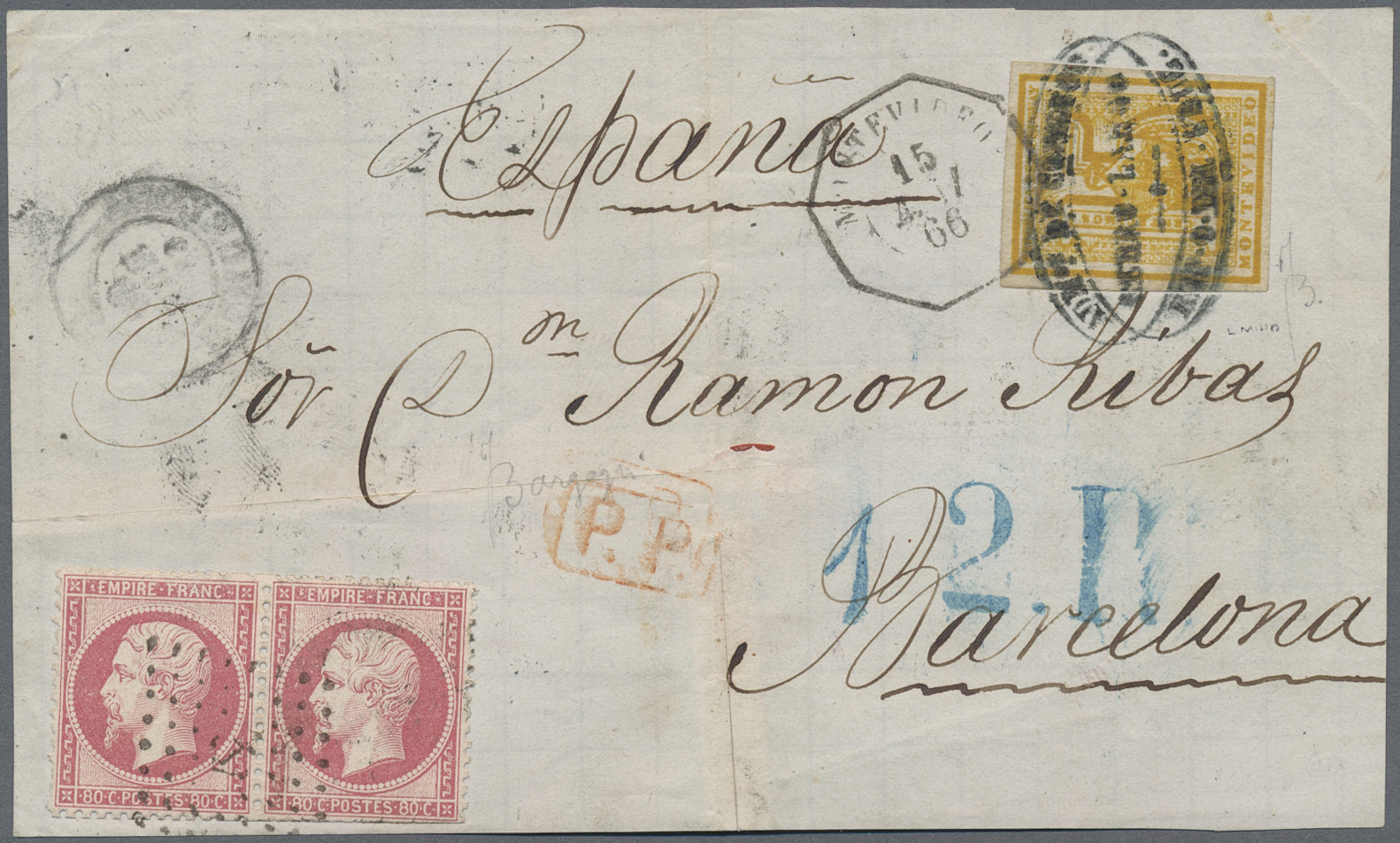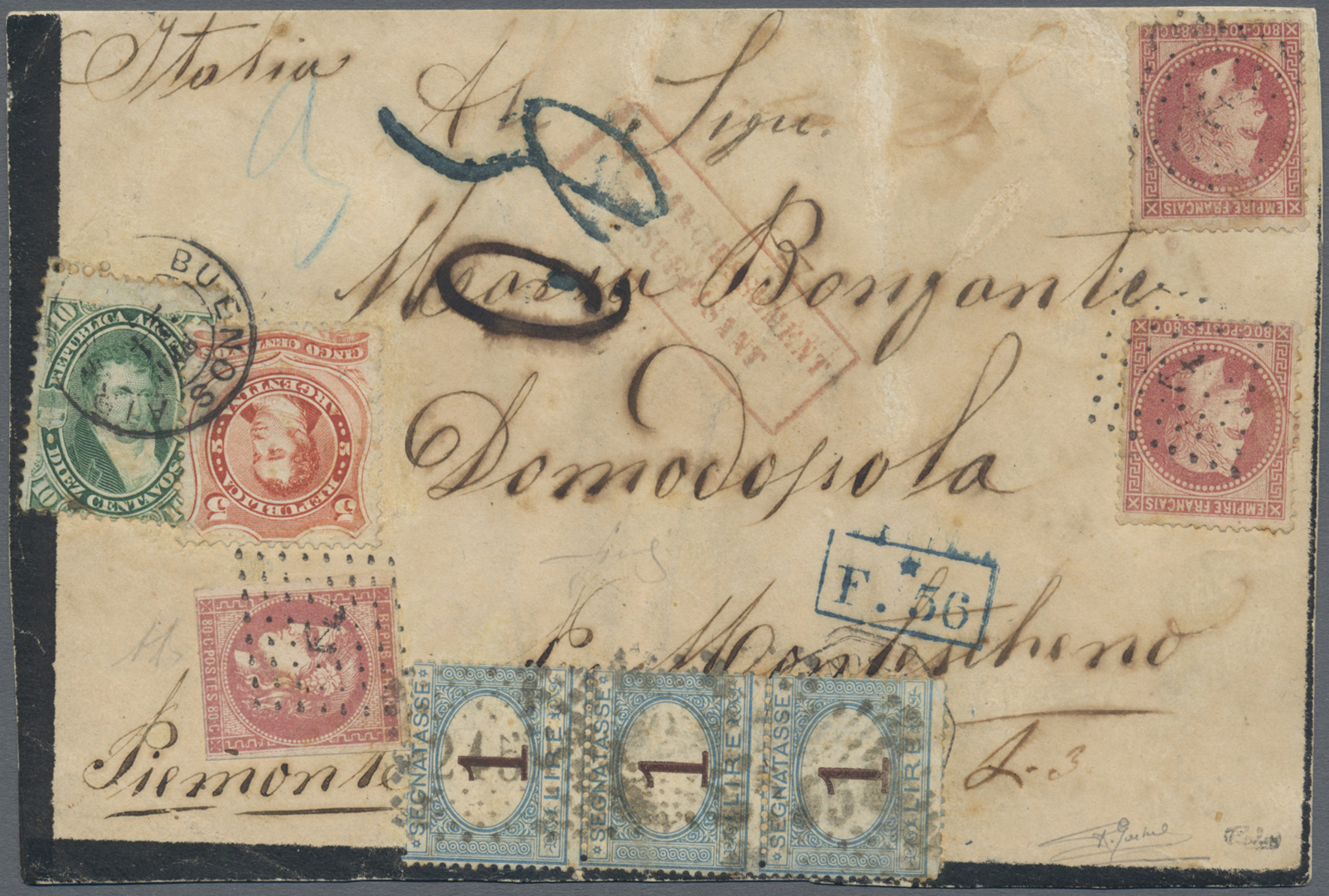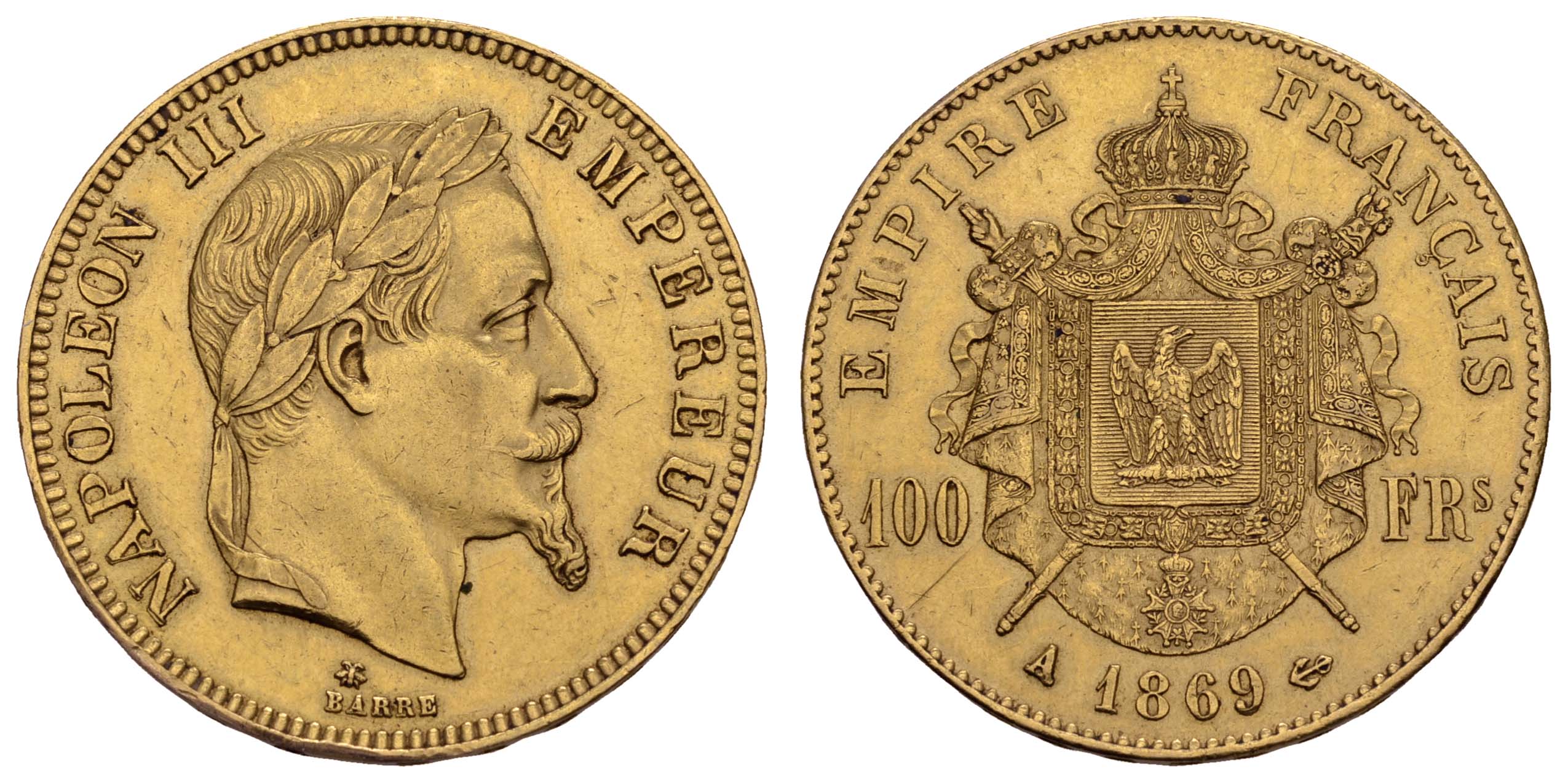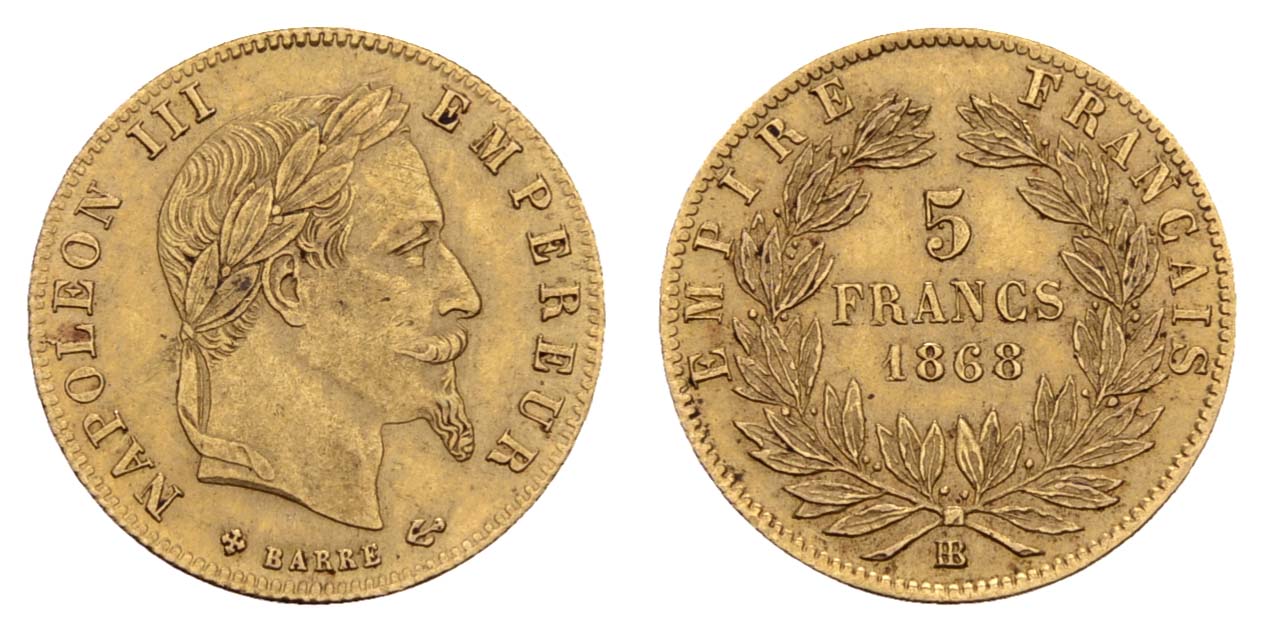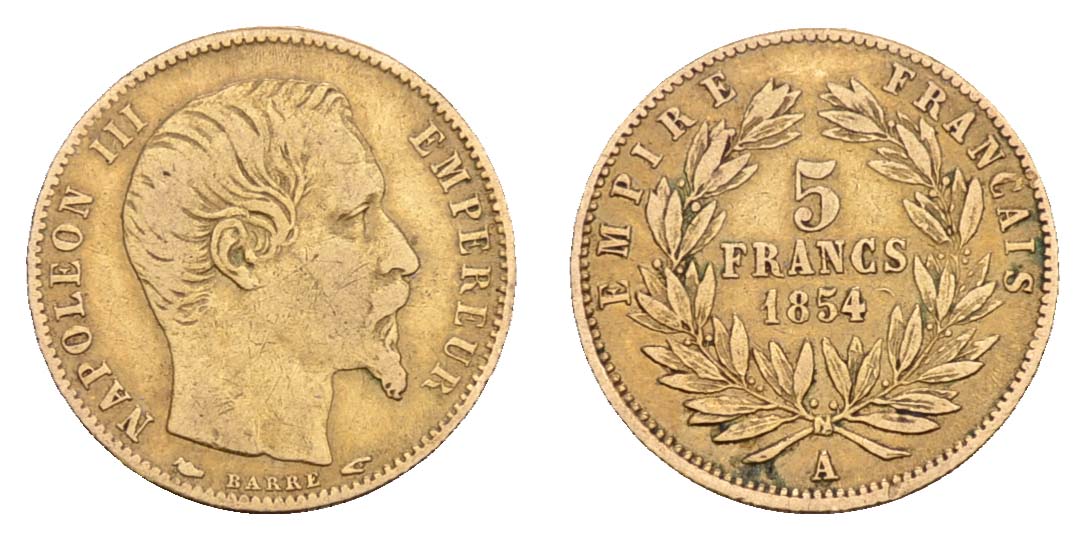By: Auktionshaus Edgar Mohrmann & Co. Internat. Briefmarken-Auktionen GmhH
lot # 143 - Frankreich - Vorphilatelie
Frankreich - Vorphilatelie: 1840: NAPOLEON I, THE RETURN OF HIS ASHES FROM THE ISLAND OF ST. HELENA
1840: NAPOLEON I, THE RETURN OF HIS ASHES FROM THE ISLAND OF ST. HELENA TO FRANCE. Two page autograph letter signed by the French King Louis Philippe I (6 October 1773 – 26 August 1850) written in „Neuilly 30 Mai 1840“ and sent to Princess Augusta of Bavaria (Strasbourg, 21 June 1788 – Munich, 13 May 1851). Augusta was the widow of Eugène de Beauharnais, stepson of Napoleon I.
In this letter Louis Philippe describes in vibrant terms the reasons that convinced him to decide for the historical chance to RETURN THE MORTAL REMAINS OF NAPOLEON I FROM THE ISLAND OF ST. HELENA TO FRANCE and finally to his tomb in the „Hotel des Invalides“ in Paris.
„Madame ma cousine... Je suis heureux qu‘ il m‘ ait été réservé de rendre à la terre de France, les restes de celui qui ajouta tant de gloire à nos fastes, & d‘ entourer le tombeau de l‘ Empereur Napoléon de tout les honneurs que lui devait notre comune Patrie. Je m‘ applaudis, Madame d‘ avoir obtenu votre suffrage & d‘ avoir reçu de votre Altesse Royale l‘ assurance l‘ assurance que le Prince votre Epoux aurait partagé les sentiments que vous venés de me témoigner d‘ une maniére qui m‘ a profondément touchés... Le trés affectionné Cousin Louis Philippe. Neuilly 30 mai 1840“.
The retour des cendres ("return of the ashes") was the return of the mortal remains of Napoleon I of France from the island of St. Helena to France and their burial in the Hôtel des Invalides in Paris in 1840, by initiative of Adolphe Thiers and King Louis-Philippe.
In a codicil to his will, written in exile at Longwood House on St Helena on 16 April 1821, Napoleon had expressed a wish to be buried "on the banks of the Seine, in the midst of the French people [whom I] loved so much". On the Emperor's death, Comte Bertrand unsuccessfully petitioned the British government to let Napoleon's wish be granted.
However, twenty years later, Adolphe Thiers, the new Président du Conseil under Louis-Philippe and a historian of the French Consulate and First French Empire, dreamed of the return of the remains as a grand political coup de théâtre which would definitively achieve the rehabilitation of the Revolutionary and Imperial periods on which he was engaged in his Histoire de la Révolution française and Histoire du Consulat et de l'Empire.
THIS VERY FINE LETTER IS ONE OF THE MOST IMPORTANT MANUSCRIPT DOCUMENTS IN PRIVATE HANDS RELATED TO THE FINAL CHAPTER OF THE HISTORY OF NAPOLÉON I: THE RETURN OF HIS MORTAL REMAINS TO FRANCE. ÷ 1840: zweiseitiger Brief, unterzeichnet von König Ludwig Philippe I. von Frankreich (6. Oktober 1773 - 26. August 1850), geschrieben in "Neuilly 30. Mai 1840" und gesandt an Prinzessin Augusta von Bayern (Straßburg, 21. Juni 1788 - München, 13. Mai 1851).
Augusta war die Witwe von Eugène de Beauharnais, Napoleons Schwiegersohn. In seinem Brief beschreibt Louis Philippe ihr euphorisch, warum er die historische Chance ergreift, die sterblichen Überreste von NAPOLEON I. VON DER INSEL ST. HELENA nach Frankreich zu überführen, damit er seine endgültige Ruhestätte im "Hôtel des Invalides" in Paris findet.
"Madame ma cousine..... Je suis heureux qu'il m'ait été réservé de rendre à la terre de France, les restes de celui qui ajouta tant de gloire à nos fastes, & d' entourer le tombeau de l' Empereur Napoléon de tout les honneurs que lui devait notre comune Patrie. Je m' applaudis, Madame d' avoir obtenu votre suffrage & d' avoir reçu de votre Altesse Royale l' assurance l' assurance que le Prince votre Epoux aurait partagé les sentiments que vous venés de me témoigner d' une maniére qui m' a profondément touchés..... Le trés affectionné Cousin Louis Philippe. Neuilly 30 mai 1840".
("Madame, meine Cousine..... Ich bin froh, dass es mir vorbehalten war, dem Land Frankreich die Überreste desjenigen zurückzugeben, der unserem Glanz so viel Ruhm verliehen hat, & das Grab des Kaisers Napoleon mit allen Ehren zu umgeben, die unsere Heimat ihm schuldet. Ich applaudiere mi
Br
Sale Terms
Edgar Mohrmann
Founded in 1929 by Edgar Mohrmann, a businessman from Lübeck, we can look back on tradition that has lasted more than 85 years. Today we are one of the oldest and most successful auction houses... Read More
Send Email to Auktionshaus Edgar Mohrmann & Co. Internat. Briefmarken-Auktionen GmhH Or Visit WebSite


